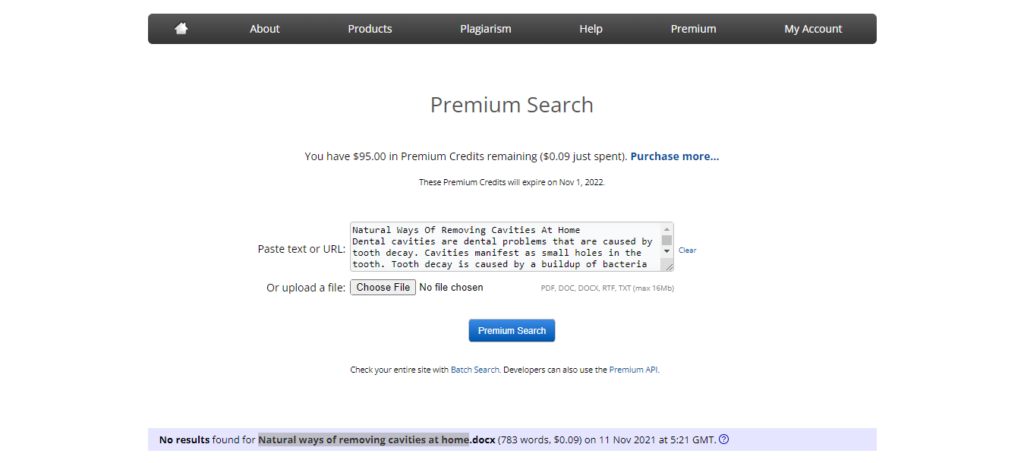

Dental cavities are dental problems that are caused by tooth decay. Cavities manifest as small holes in the tooth. Tooth decay is caused by a buildup of bacteria and food deposits on the teeth. Usually, the food deposits and bacteria are meant to be removed by brushing, and when this does not happen, they form a film on the teeth, resulting in plaque.
You can visit a dentist at St. Albans NHS if your teeth may be covered in plaque. Meanwhile, preventing cavities using home remedies is possible only when the decay in the teeth is at an earlier stage.
Is it really possible to get rid of cavities at home?
When a patient has cavities in their teeth, it can only be treated by a dentist. However, in the pre-cavity stage, the tooth’s enamel can be strengthened with certain home remedies. The process of strengthening the tooth enamel is known as remineralisation, and it is meant to protect the teeth from cavities. One of the best ways of protecting the teeth is by brushing with fluoride toothpaste. While this is very important, some people still prefer home remedies that include the following:
- Aloe vera
Aloe vera tooth gel is quite helpful in fighting off bacteria responsible for cavities. Aloe vera gel for dental use has antibacterial properties that effectively eliminate harmful bacteria in the mouth. This was proven in a 2015 review of the product. Although more research needs to be conducted, it is presumed that aloe vera can help prevent cavities early by remineralising the enamel.
- Vitamin D
According to a study conducted in 2013, results concluded that vitamin D supplements are very helpful in reducing dental cavities effectively. This is due to the mineralising effect found in vitamin D, which helps strengthen the enamel of the tooth.
- Liquorice root
Liquorice root has antibacterial properties that target the bacteria responsible for cavities. A trial conducted in 2011 showed that consuming food containing liquorice extract like liquorice-containing-lollipop can help to prevent cavities. Further studies need to be conducted before dentists can properly recommend such lollipops as a means of preventing cavities.
- Oil pulling
Oil pulling is a process that involves the swirling of sesame oil or coconut oil in the mouth for a specific period before spitting it out. It is a process that originated in an old system of alternative medicine referred to as Ayurveda.
Although oil pulling is not scientifically backed as some people claim, research has still shown that it can also improve the health of ones’ teeth. According to a study in 2009, sesame oil greatly reduced the number of bacteria and plaque when used in the oil pulling technique, almost the same as a mouthwash.
Since oil pulling is effective in removing plaque, it is also effective in remineralising the enamel.
- Stay away from phytic acid
It has been proven that phytic acid is harmful to the teeth. Because of this, some believe that eliminating it completely from one’s diet will prevent cavities. In the 1930s, a study conducted linked cavities to a diet containing phytic acid. In 2004, a study showed that the absorption of minerals from the food was affected by phytic acid. This means that phytic acid should be eliminated completely from the diet. Note that phytic acid is present in the following food and should be eliminated or consumed in small quantities
- Rice
- Haricot beans
- Maise
- Rye
- Wheat
- Kidney beans
- Navy beans
- Pinto beans
- Blackeye beans
- Avoid sugary drinks and food
Sugar consumption is the leading cause of tooth cavities. When sugar gets into the mouth, it reacts with the bacteria in the mouth, forming a corrosive acid that erodes the tooth’s enamel. To reduce the chances of developing a dental cavity, WHO (World Health Organisation ) recommends that everyone consume less sugary food and drinks and consume more healthy food, fibre and vegetables.
- Sugar-free gum
Results from studies conducted in 2015 show that chewing sugar-free gum after eating will reduce harmful bacteria in the mouth. It is this bacteria that is responsible for damaging the enamel. When the level of harmful bacteria in the mouth is reduced, the enamel is stronger and is thus better at fighting decay in the mouth.
While home remedies aim to reduce the risk of a cavity, other dental hygienic activities like brushing and flossing should still be taken seriously. You should still see your dentist regularly because some cases of a dental cavity can be painless and should be detected at an early stage for effective treatment. Reach out to us at St. Albans Dental Clinic if you need an NHS dentist at St. Albans.





